Lucie Silver posed a simple challenge to 11-year-old Brian Lancel: “Name three things you can do for exercise, now that it’s colder out.”
Initially, Brian responded without hesitation. “One, run. Two, push-ups, jumping-jacks and squats.”
But then he hemmed a bit uncertainly. “Three …”
Silver, the exercise physiologist at the Healthy Weight Center at Spectrum Health Helen DeVos Children’s Hospital, offered a hint.
“What’s a really hard one that you like?” she asked.
“Burpees,” Brian said.
Perfect answer. Before joining the program at the Healthy Weight Center, Brian had likely never even heard of burpees, let alone enjoyed doing them.
Now, with the help from his mother, Lourdes Lancel, Brian has embraced new eating habits and made exercise a top priority.
“I’m very happy that this program is available,” Lourdes said during Brian’s recent checkup at the center, located adjacent to the children’s hospital. “You feel very comfortable. You don’t feel pressure or criticism.”
Beyond the O-word
That comfort level is critical to the program’s success, according to pediatrician William Stratbucker, MD, medical director at the Healthy Weight Center.
Founded in 2010, the Healthy Weight Center offers a medically focused, research-based approach to prevention and treatment of childhood obesity.
But you won’t hear the O-word around here. You won’t even hear them talk about losing weight.
Instead, the center’s staff focuses on a child’s whole life picture—what they eat, their activity level, their sleep quality, their mental health concerns and more.
In pediatrics, weight loss isn’t even the goal for children who haven’t finished puberty, Dr. Stratbucker explained. The aim is healthy weight gain, as opposed to excessive gain.
According to the growth charts the doctors use, children should gain around 6 to 8 pounds per year.
“If they’re exceeding that amount, then some questions should be asked,” he said.
The program serves toddlers to teens. There’s typically a body mass index based on the child’s age and gender, at or above the 95th percentile. The center also recently began treating children who, regardless of weight, have been diagnosed with dyslipidemia, a condition involving a high level of lipids such as triglycerides and cholesterol.
Children are referred to the program by their primary care physician. At the outset they meet with a team of physicians, dietitians, exercise physiologists and psychologists to complete an initial exam and medical history.
“We can individualize treatment for each patient and family because not everybody is the same,” Dr. Stratbucker said. “We can be flexible for what each family needs.”
CHAMPS
During the initial 12-month treatment phase, patients and their parents visit the center about eight times. After that the visits are less frequent—usually every three to six months.
Lourdes asked Brian’s pediatrician about his weight gain more than a year ago.
“I asked her if there was anything available,” she said. “Because of his age I wasn’t sure what to do and what was appropriate.”
The pediatrician referred them to the center. While Brian quickly loved the program and approached it with motivation, Lourdes initially found it challenging.
“It was hard in the beginning. It was hard for me,” she said. “I didn’t give up, because I wanted him to feel that he had a supportive mom.”
They made changes to their family diet, giving up sugary drinks and introducing healthier snacks and smaller portions. For Brian, that meant giving up Mountain Dew and Gatorade.
“Now, I have water,” he said.
He also had to cut back on a favorite treat—spicy chips called Takis. The family also ditched white bread for whole wheat.
“I stopped buying those things,” Lourdes said.
During a recent visit to Brian’s school, one of his teachers offered Brian a doughnut. Brian politely declined.
“I didn’t want to have so much sugar,” Brian said.
Brian loved participating in CHAMPS, an optional exercise education program Silver offers to patients at the center. CHAMPS meets year-round in 14-week sessions, on Wednesdays and Saturdays at the David D. Hunting YMCA.
The CHAMPS program gives kids and families an opportunity to learn workout routines and exercises they can do at home, while also familiarizing them with a gym setting, Silver said.
Brian also participated in a summer camp that Silver organized at the YMCA last year through a grant from Kohl’s Cares. Each morning during one week in June and one week in July, patients and their siblings exercise and play together.
Open and honest
In his time at the Healthy Weight center, Brian said he has learned a lot.
“It’s kind of hard to manage the weight,” he said. “It helps if you’re in a program.”
His mother is grateful for the support and encouragement, too.
Dr. Stratbucker said it’s critical to build a strong relationship between families and the center’s team.
“One of the keys is to be open and honest,” he said. “We need families to tell us exactly what they are buying at the store, what they are serving for dinner, how much snacking is going on. Unless we get the real story, it’s really hard to help.”
Ultimately, he hopes families understand the Healthy Weight Center is a safe place.
“This is judgment-free,” Dr. Stratbucker said. “On the other hand, we will make suggestions on things that will help.”
And evidence certainly shows the center is helping children. In the eight years since the Healthy Weight Center opened, 75 percent of the children who completed treatment lowered their BMI percentile.
“For 75 percent to have success with their weight after 9 to 12 months, to us that’s a really important number,” Dr. Stratbucker said. “But we define success in many different ways.”
Those numbers don’t show the other countless improvements in other areas—mental health, sleep, asthma control, living a more active lifestyle and eating healthier, Dr. Stratbucker said.
Meanwhile, Brian just signed up for another 14-week session of CHAMPS.
You’ll find him there twice a week, working out in the gym and doing his new favorite activity: basketball.

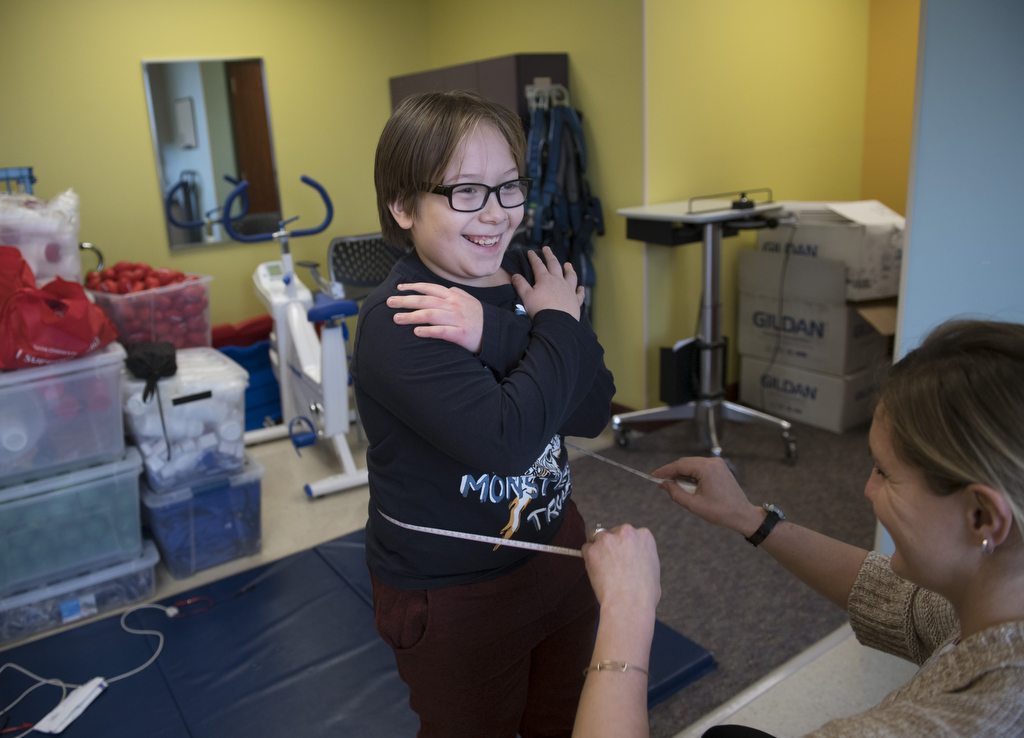


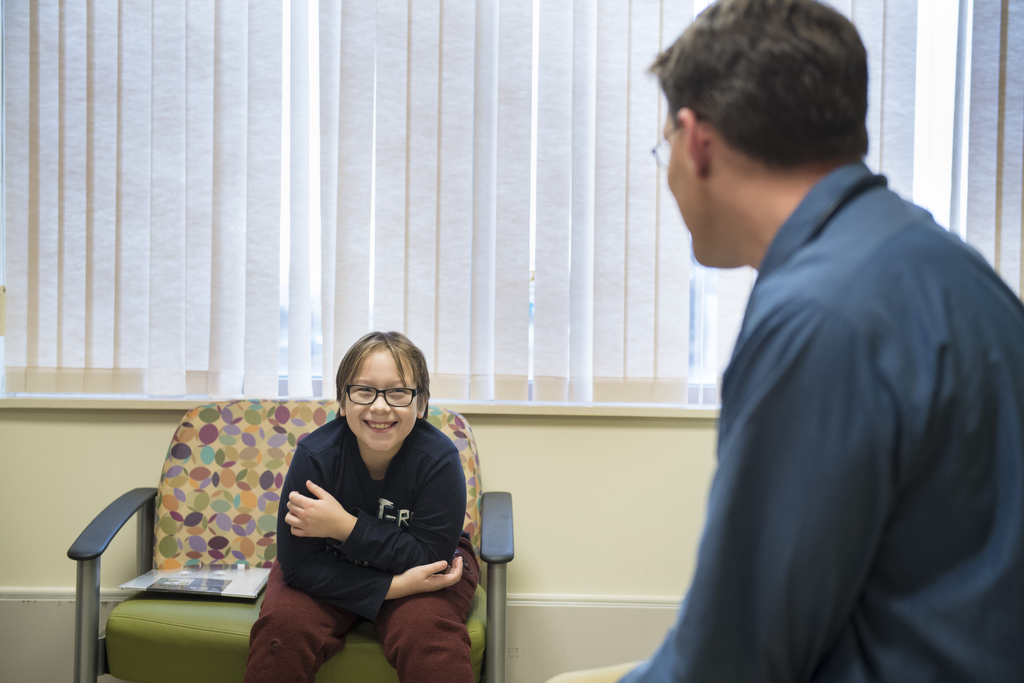
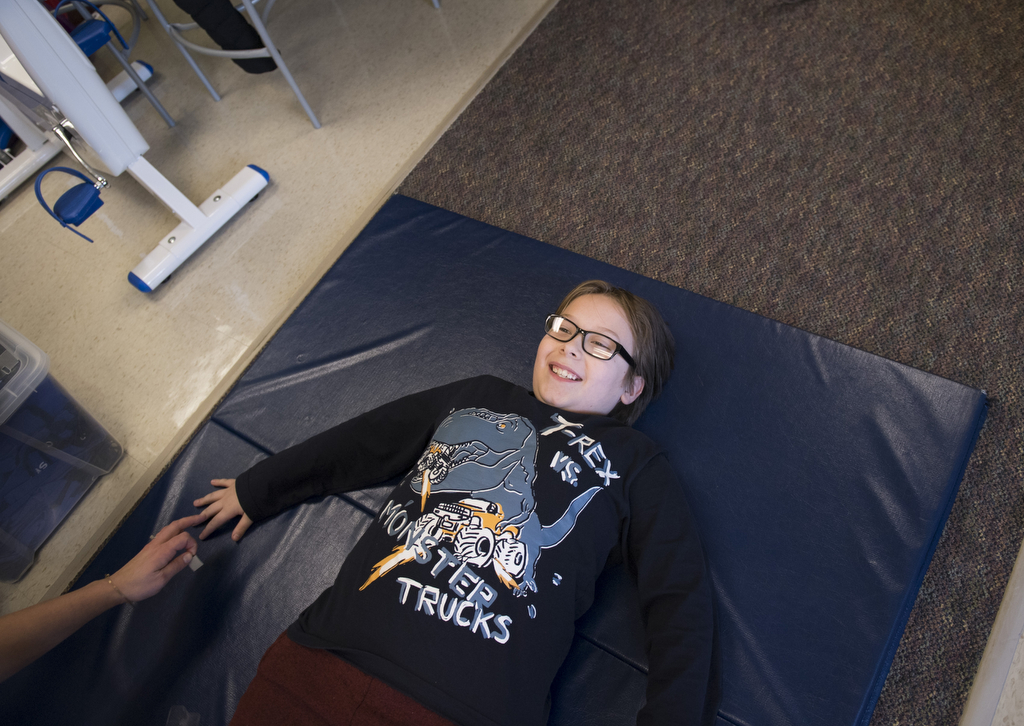

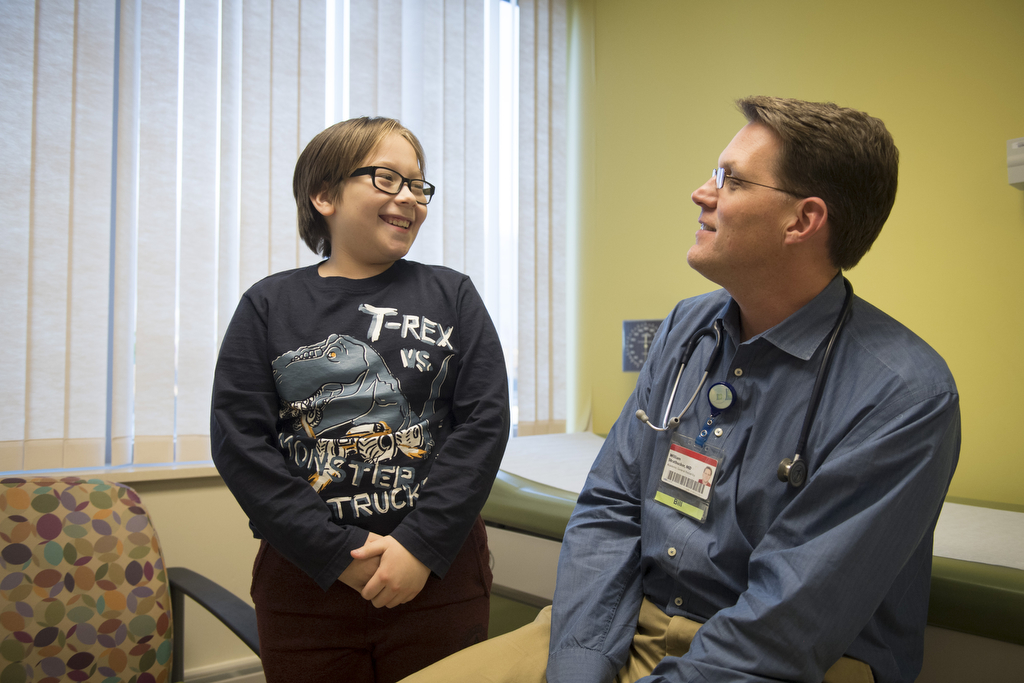
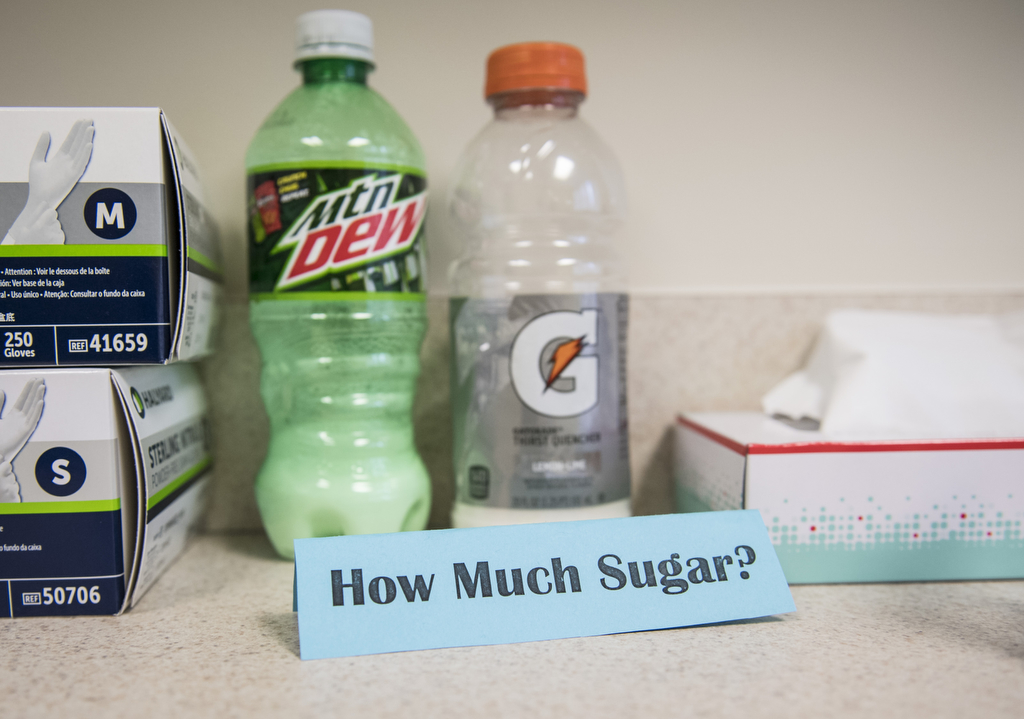

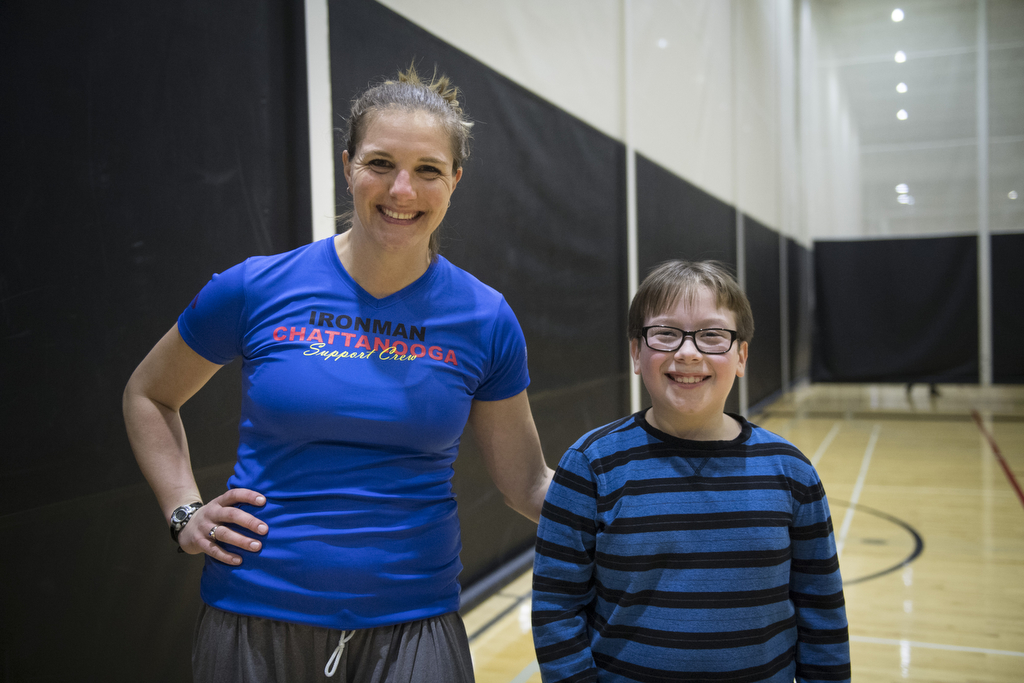
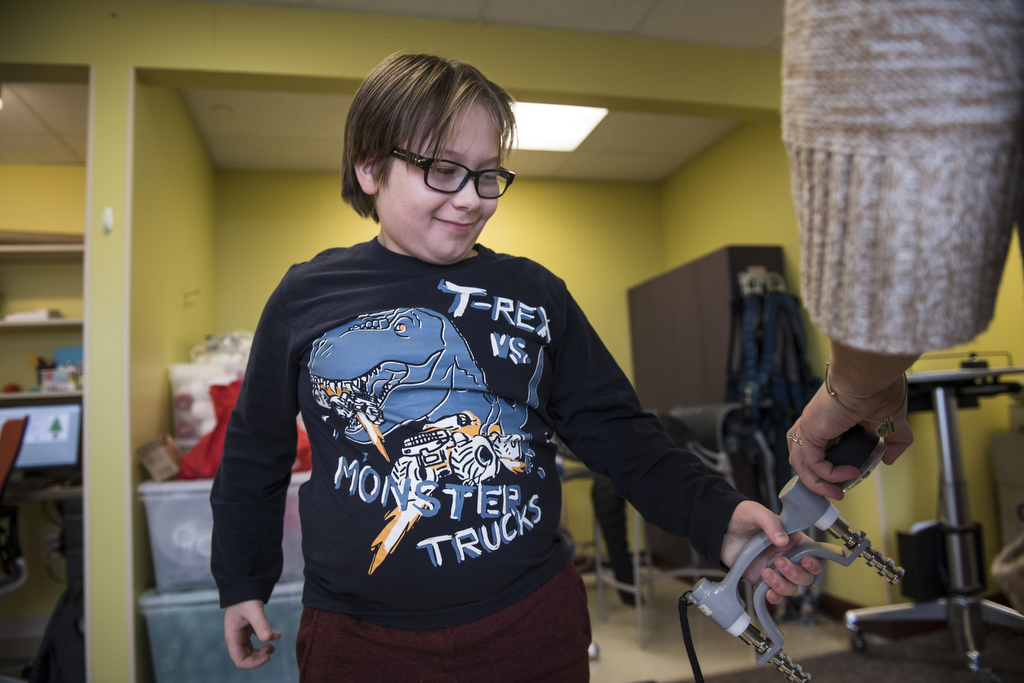
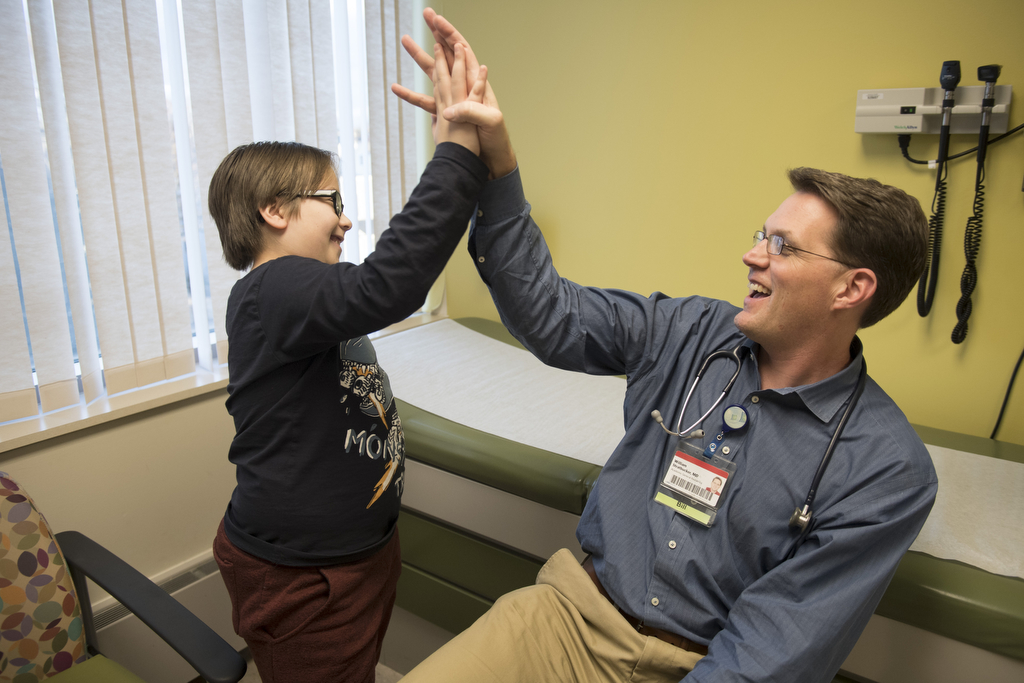

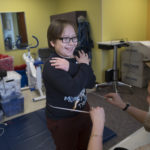



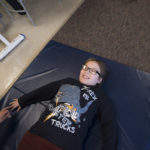







 /a>
/a>
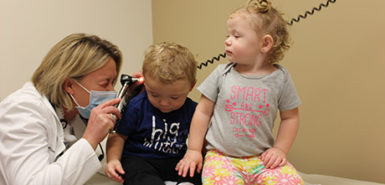 /a>
/a>
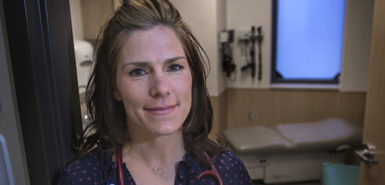 /a>
/a>
Very commendable Brian! Keep reaching for the stars!
Thank you Dr Stratbucker
for making this possible for so many families.
A place for young children to go and learn.